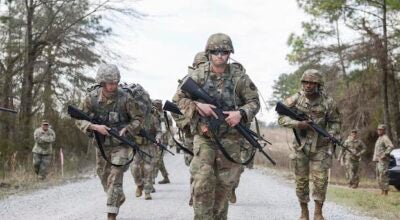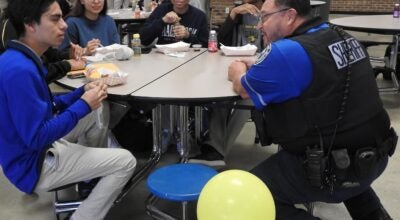Vacherie native helps formerly incarcerated women complete lab assistant program
Published 2:41 pm Tuesday, June 14, 2022

- Syrita Steib
|
Getting your Trinity Audio player ready...
|
NEW ORLEANS — Six weeks ago, 11 women impacted by incarceration began an intensive Lab Assistant Rapid Reskilling Program to equip them with the knowledge and skills to become certified medical laboratory assistants. Each of them successfully completed the rigorous training, and they recently received certificates in a ceremony at Operation Restoration’s office in Benson Tower, 1450 Poydras Street, Suite 2260.
Syrita Steib, founder and executive director of Operation Restoration (OR), implemented the program after being named a Fellowship for the Future 2021 Fellow by 500 Women Scientists. Steib, a licensed and certified clinical laboratory scientist, and OR are founding partners in the national STEM-OPS network that promotes science, technology, engineering, and mathematics (STEM) learning opportunities in prisons.
“I was always interested in math and science and planned to go to medical school,” says Steib, whose education and dreams were interrupted by 10 years of incarceration. “Fortunately, I eventually returned to college and received a degree from LSU Health Sciences Center. It is important for me to ensure other women have access to those same opportunities.”
During the early weeks of the pandemic, when healthcare facilities in New Orleans were overwhelmed with COVID-19 tests, Steib returned to the lab to help process the backlog. That experience emphasized the need for more lab assistants and reinforced her vision for providing women with employable skills after incarceration.
Among the first cohort to complete the program are mother and daughter Michelle and Reginique Brown. Michelle, who worked as a nurse’s aide for 13 years, said she and her daughter kept running into roadblocks because of their background. When she discovered this opportunity specifically for women impacted by incarceration, she told her daughter it was one less brick wall for them to scale.
“We are excited to receive our certificates, and I am excited to get back into healthcare. This will be different as I won’t be dealing directly with patients. It was hard in the past when you became close to patients who you sometimes lose,” she explains.
Rosemary Martin, education director at OR, describes the first cohort as extremely successful. Several students have already submitted applications to local hospitals. The second cohort begins on June 21 with virtual and in-person classes. Requirements include being formerly incarcerated, identifying as a woman, 18 years or older, and having graduated high school or scored six or above on the Test of Adult Basic Education (TABE).
In addition to the 11 women receiving certificates for the laboratory training, one student is also celebrating completion of the high school equivalency exam.




